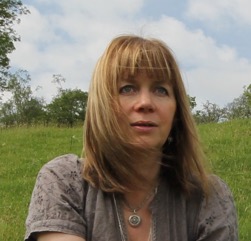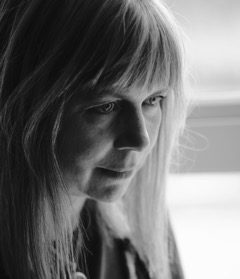Now in its second month, the Wales Arts Review Book Club exists to celebrate great fiction from Wales, and to engage a community of members who vote each month on which book to read next. This month, members voted for Mabli Roberts’ nuanced and intriguing novel God’s Children, which narrowly beat Jane Fraser’s new short story collection, The South Westerlies, to become the June Book of the Month.
God’s Children (Honno) is a fictional account of nurse and explorer Kate Marsden’s life, in particular her perilous journey across Siberia in search of a cure for leprosy. The novel raises questions about the truth of Marsden’s story: is she the fearless, intrepid adventurer she styles herself as, or do accusations of her dishonesty and hunger for power ring true?
Marsden has always felt like a character in the shadows and slightly unreal to me – until now. This moving imagining of her story has finally brought her into focus, incorporating all her human flaws, complexity and resilience into one rounded and very memorable whole.
Felicity Aston, MBE, polar explorer
Here, Mabli Roberts talks to Rosie Johns about the process of writing such a contentious historical figure’s life story, about the process of researching for the novel as well as the gaps that had to be sensitively filled in, and the arduous task of pulling together all the narrative threads.
This interview features questions from book club members.
What led you to Kate Marsden’s story, and what inspired you to re-work it into a fictional narrative?
I’ve always been fascinated by people who undertake long journeys into wild places, so I happened upon Kate during some of my wider reading. She wrote her own account of her trek across Siberia, which I found riveting but which sparked an interest about her life beyond her mission. It was certainly eventful.
 From the outset we are told that ‘history is cruel’, and the reliability of the narration is consistently called into question. Do you feel readers should maintain a sense of scepticism when it comes to historical events and records?
From the outset we are told that ‘history is cruel’, and the reliability of the narration is consistently called into question. Do you feel readers should maintain a sense of scepticism when it comes to historical events and records?
As a writer of historical fiction I have long held the belief that there are as many different versions of an event in the past as there are records of it! Every historian adds his or her particular slant or emphasis to the facts. It cannot be otherwise. Our job as historians, writers or readers is to be selective, be wary, but remain open minded, I think. The original newspaper articles about Kate which I found in an archive were clearly prejudiced against her, while her account of her trek paints everything she did in very positive colours. The truth might lie in the middle ground, but the edges are invariably more interesting.
What was the process of researching for the novel like? Was there anything you discovered that didn’t make it into the book?
I was keen to avoid a snowy epic covering an entire life from beginning to end, so lots of material ended up on the cutting room floor. For example, Kate did visit more than one prison in Russia, and she served quite extensively as a war nurse, as well as achieving many things she after the trek. To keep the book focused and intimate I had to cut pretty ruthlessly. I wanted the mission itself to be at the core of the book, holding together the fragments of the other important times in her life that we get to see.
How did you go about filling in the blanks of her life?
This was one of the most challenging aspects of writing this particular book. I couldn’t know all that was in Kate’s mind, nor everything about her relationships. I saw it as my job as a novelist to create a story presenting her life as truthfully as I could, creating scenes and events that I believe reveal more of her, building on what I learned about her. And yet, of course, it is fiction. I don’t know. I can only invent.
Given that we’re made aware of the existence of doubters about Kate Marsden’s motives and therefore her own narration in the book, a question for the author would be how tempted was she to promote a particular view of Kate’s integrity or should fictional ‘biographers’ always allow readers to come to their own conclusions?
For me, it was really important that I didn’t appear to support one view over another, but supplied enough glimpses of Kate’s life, enough insight into her character and sufficient facts for readers to be able to form their own opinions. I would not presume to tell other writers how they should write; I can only say how I approached the challenge of fictionalising the story of a real person. I certainly presented unique challenges, and I tired really hard not to enforce my own judgements onto the text. If readers feel that they are left to make up their minds rather than being told what to think of Kate then I’m pleased.
Were there any aspects of Marsden’s story you found particularly hard to put to words?
One of the things that attracted me to the idea of writing Kate’s story was the raw beauty of the landscape she trekked across. I revelled in writing the scenes where she is in Siberia, so those parts of the book were probably the easiest for me. Suggesting Kate’s inner turmoil was harder, naturally, but as she was quite a forceful character and a sociable one, there were ways to reveal things about her if not through her own actions or words, then through the reactions of others to what she did or said.
What do you hope readers take away from the book?
I would like to think I have treated Kate fairly and introduced her to a wider audience, so that people know what it was she achieved. If readers feel they have also trodden a few steps of that magnificent landscape along with Kate then I would be delighted.
Do you have any works in progress you can tell us about? What can we look forward to next?
I write historical-fantasies under my other name, Paula Brackston, and am currently working on the third book in a series, the first of which was The Little Shop of Found Things. I also write comic-crime-fantasies and my Detective Gretel books (writing as PJ Brackston) are getting their UK launch this month. I very much hope to write another Mabli Roberts book next year.
Thank you Mabli (or should we say Paula!) for the insightful interview.
If discovering great new books from Wales is your thing and you’d like to be a part of the Wales Arts Review Book Club, please join by liking the Facebook page. It’s a friendly community of readers, where you will find book discounts, conversation and literary insight. We hope to see you there.












